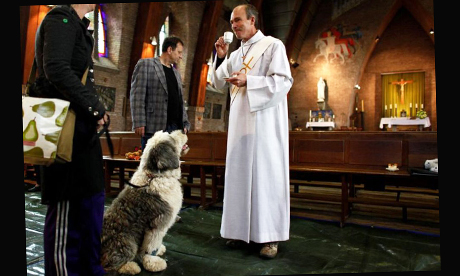Rocketing energy bills and a shortage of priests have driven a Dutch Roman Catholic Diocese to cut the number of Masses in some churches.
The southern Diocese of Roermond wrote to its parishes last week to encourage some to periodically skip Mass, spokesman Matheu Bemelmans said on Thursday.
“Finances cannot be a dominant factor, but we cannot ignore them either. If you have only a handful of people each donating a euro, that’s not enough to cover the heating bill,” Bemelmans said.
Most Dutch households and companies rely on gas for heating.
Prices soared 90% in the year to August, driving inflation to more than 13% in the Netherlands. This increase reflects similar sharp increases throughout Europe since Russia invaded Ukraine in February.
But it is not only the rising energy costs that has driven the diocese to reduce the number of religious services it will offer. A shortfall in the number of clergy is also a factor.
The number of churchgoers and priests has been on the decline in the Netherlands for some time.
Between 2014 and 2020, the number of Catholic priests living in the Netherlands decreased from 723 in 2014 to 610 in 2020.
The decline in priests is matched by a decrease in the general Catholic population. The Catholic Church in the Netherlands lost around 1.5 million members in the last two decades.
“Sometimes it’s simply not possible to find a priest to give a service at every church, every weekend,” Bemelmans said. “If there are churches with only a few visitors, we are saying: be practical and skip a week and ensure those people can follow Mass at another church.”
In the letter addressed to the parishes of the diocese, the vicar general René Maessen decreed that, because of a lack of celebrants, the weekly Eucharistic celebration is no longer obligatory.
Maessen points out that parishes should make this decision only if they have no other choice. Since such an initiative is almost always irreversible, it can be seen as a first step towards closing a church.
The diocese, which oversees roughly 290 churches in the province of Limburg, expects the measure to initially affect 10-15 churches.
Sources
